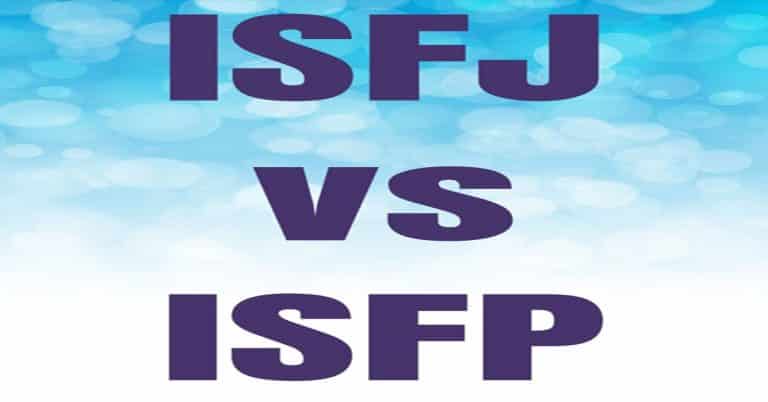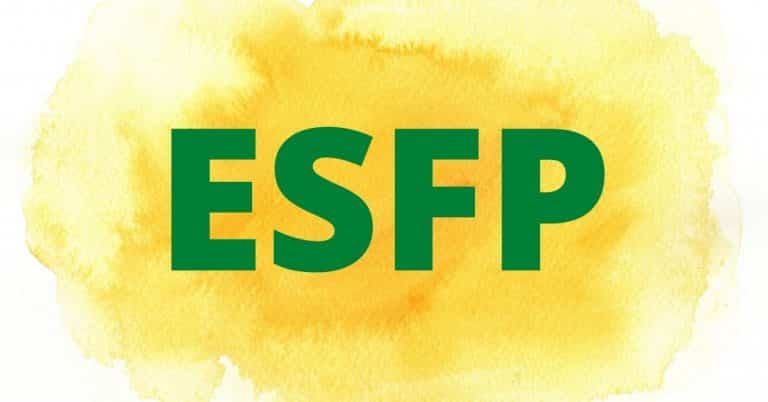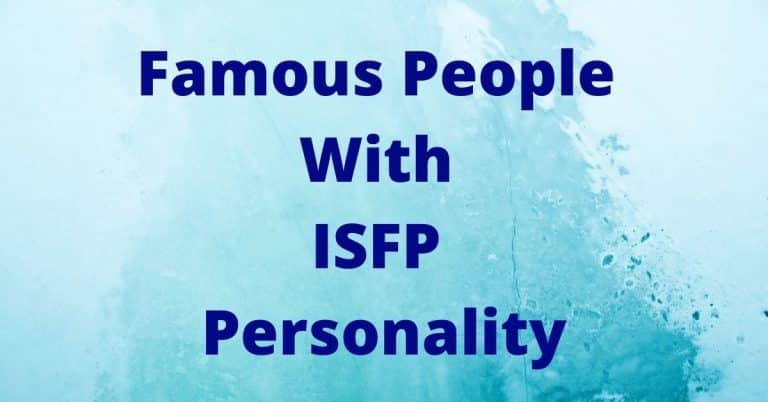ISFP – The Adventurer
Contents
ISFP Meaning:
The ISFP is relatively common compared amongst the other Myers-Briggs personality types at 9 percent of the population, with approximately 10 percent of women reporting in as ISFP, compared to a close 8 percent of men. Other titles or names for the ISFP can include the Composer or the Producer.
The ISFP consists of Introvert, in that they energize themselves by looking inwardly and through intense introspection, Sensing, in that they prefer to use information obtained directly through the five senses, Feeling, in that they make their decisions based primarily out of feeling as opposed to exclusively based on facts and rules, as well as Perceiving, in that they are not rigid or necessarily organized in any given approach, and prefer to work with new information as it presents itself.
The ISFP is driven and guided by their Feeling preference, and, as such, they make for very profound friends, lovers, and professionals. They are Perceiving, and therefore do not appreciate rigid structure, routine, or rules in their professional and personal lives. Given their tendency for Introversion, they tend to have and keep a limited social circle. However, they are fiercely loyal to those that the ISFP deems as worthy enough to stay close to and open up to. The ISFP is truly a free spirit. They are fun-loving and enjoy exploring the world with a profound appreciation for everything that it has to offer. The ISFP lives for the here and now and does not necessarily concern themselves or stress about the future.
Instead, they prefer and choose to live in and cherish the living moment. ISFPs are also highly attuned to the emotions and feelings of others and are often the go-to person for those in spiritual or emotional need. The ISFP has the uncanny ability to know precisely when, what and how to say crucial pieces of wisdom or advice. ISFPs also tend to be deeply entrenched and faithful to their personal beliefs and actively seek out work and relationships that are conducive and complementary to these beliefs.

ISFP and Career:
In their careers, ISFPs are primarily concerned with finding work that is in alignment with their core values and beliefs. Similar to the ISTP, the ISFP enjoys and derives satisfaction from producing and completing work that produces recognizable and measurable results. Given their Introversion, the ISFP does indeed prefer to keep to themselves and work independently. However, the ISFP also appreciates work environments where they can meet a variety of different personalities, especially when it is within the context of each of them working towards a shared and combined goal.
ISFP as Direct Reports:
As direct reports, ISFPs can appear as timid or shy at first glance and upon the first impression. They are soft in demeanor and do not necessarily speak up or out. However, in time, the ISFP demonstrates a gentle strength and wild creativity and can provide out-of-the-box solutions and profound perspectives not previously considered or previously unseen. ISFPs have a particular dislike for competition and tend to be at odds with those that are highly competitive in nature. To the ISFP, the competition challenges their harmonious and balanced temperament and would instead much rather prefer to keep to themselves.
Also, given their propensity for Perceiving, the ISFP is not drawn towards planning or organizing. While they are always willing to support and lend a hand where it is needed, they dislike structure and rules in the workplace. Also, given their propensity for living in the here and now, they tend to stray away from the realm of the abstract and theoretical, as it does little for changing the present. Instead, the ISFP would prefer the direction that takes immediate action, and that produces immediate results.
ISFP as Leaders of Others:
As a leader of others, the ISFP is unassuming, gentle, and available for their team. Although ISFPs do not prefer leadership positions, they will take on the role if it is for the right cause or if it is necessary to start a noble project or prevent one from losing momentum.
ISFPs engage their team through personal connections, and usually on an emotional level. They are practical and level-headed and will provide direction that represents the best course of action for everyone on the team. They do not like the title of ‘boss’ as it implies a certain degree of structure and hierarchy, which they are opposed to. Instead, they would much rather continue to work as a peer, be available for questions, and provide direction in a collaborative and encouraging way.
ISFP Professions:
As such, the ISFP personality type lends itself quite well to specific careers and professions. Specifically, the ISFP will be most at ease in a work environment that is not rigid in its rules and structure and which does not require heavy interactions with people. Above all else, the ISFP seeks out a work environment that aligns with their internal beliefs and ideals. Possible careers for the ISFP can include Artist, Fashion Designer, Interior Designer, Nurse, Therapist, Teacher, Fitness Trainer, A social Worker, a Florist, a Jeweler, a Doctor, among many others. However, this is not to say that the ISFP will be automatically and instantly successful at any of these professions listed. Instead, it is to say that the occupations listed are compatible with the core values and interests of the ISFP. When those values are aligned, it is conducive to an environment where the ISFP is more prone to thrive, excel and succeed professionally.
And, just as there are those careers that are not compatible for the ISFP, the same is true for possibly incompatible jobs. These include occupations that require superficial or shallow dealings with people, highly structured and hierarchal organizations, and, again, those that are at odds with the very fundamental beliefs and values of the ISFP. Examples of careers that the ISFP may want to re-consider before undertaking include Top Executive, Income Auditor, Judge, Lawyer, Architect, and some roles within the STEM industry. Again, this is not to say that the ISFP would not be successful or excel in these careers. However, it is to say that given their natural tendencies, they may find the role challenging, particularly from an engagement perspective, as well as general job satisfaction.
ISFP and Interpersonal Relationships:
In interpersonal relationships, the ISFP is a supportive, caring, and compassionate friend and lover. They are bold and display a profound appreciation for adventure and thrill-seeking. As such, they prefer and gravitate to others who appreciate this same lust for life. ISFPs are rather spontaneous in their lifestyle given their Perceiving tendency, and, as such, they can be a bit fractured and scattered in their relationships. However, similar to the ISFP in their careers, the ISFP will not compromise on the values and beliefs they hold near and dear to their hearts.
Also, given their penchant for Introversion, as vivacious, exciting, and cheerful as the ISFP may be, they do require and take their personal time and independence quite seriously. This withdrawal can come across as the ISTP becoming suddenly distant and detached to some. However, it is instead the ISFP processing and re-energizing themselves. Therefore, the ISTP works best with personality types that can understand and appreciate this.

ISFP in Friendships:
As such, there are some personality types that are more compatible with the ISFP than others. The most compatible personalities given their shared values, include personality types that share a preference for Sensing. These can consist of the ISTP (Introvert, Sensing, Thinking and Perceiving), the ISFJ (Introvert, Sensing, Feeling and Judging), the ESFP (Extravert, Sensing, Feeling and Perceiving), and, of course, fellow ISFPs.
However, similar to the ISFP and career, such is the case with the ISFP and relationships. That is to say that this does not mean that these listed personality types will be instant or successful friends. Instead, it is to say that given their fundamental values and perspectives on the world, they have much more common ground at a basic and foundational level than most other personality types and, therefore, have a better opportunity to bond and forge relationships.
And, as there are compatible personality types for the ISTP, there are also potentially incompatible ones as well. These typically include personalities that are more Intuitive in nature, and can consist of the INTJ (Introvert, Intuitive, Thinking and Judging), the ESTJ (Extravert, Sensing, Thinking and Judging), the ENTP (Extravert, Intuitive, Thinking and Perceiving) as well as the ENTJ (Extravert, Intuitive, Thinking and Judging).
Again, this is not to say that these personality types cannot forge successful and long-lasting relationships. Instead, it is to say that given their intrinsic values and perspectives of the world, there is less common ground than with most other personality types. However, with awareness and effort, friendships between these personality types could be highly advantageous and fruitful.
ISFP in Romantic Relationships:
In romantic relationships, the ISFP is deeply caring and demonstrates steadfast loyalty. They appreciate taking on the support role in the relationship and work best with a partner who seeks, values, and outwardly appreciates this. However, similar to in their professional lives, the ISFP tends to be conflict-averse. As such, they may choose not to speak up or express their feelings, which, if left unchecked, can have highly adverse effects on the relationship. Their Sensing and Feeling guide the ISFP. Suppose they are not able to outwardly express these, especially when they feel they have been slighted. In that case, it will eventually build until it is expressed in a sometimes volatile, explosive manner. As such, the ISFP must take particular care not to give or sacrifice too much of themselves and their identity to appease the temperament of their partner, lest they run the risk of devastating consequences.
ISFP and Families:
ISFPs make for incredibly fun and loving parents. Children are the ISFP’s pride and joy, and when they take on the role of parent, they embrace it and take it extremely seriously. In terms of style, the ISFP does not impose or appeal to strict rules within the household. Instead, they lead by example and teach the children to follow suit. This can be challenging for the more Judging personality children in a family. However, the practical shows of affection and expressions of their love are often enough to maintain this possible challenge in communication.
However, similar to in their interpersonal relationships, ISFPs must be cognizant and take care not to sacrifice themselves entirely to their family and children and remember to make self-care a priority when they feel the effects of exhaustion, be it physical, mental, or emotional.
Conclusion:
Thus the ISFP personality proves to be a powerful one. The ISFP demonstrates a marked affinity towards deep emotional connections and engagements and profound love and respect for others. They live a rather spontaneous and unstructured lifestyle, and this suits their thrill-seeking and adventurous lifestyle perfectly. ISFPs define themselves by those ideals they hold dear to them, and these values tend to guide them in both the professional and personal realm. ISFPs have an immense capacity for nurturing and caring and appreciate others who display this same capacity. They have close but strong social circles and enjoy others who share a similar lust for life in relationships. In families, the ISFP makes their family their highest focus and priority. And, while necessary, the ISFP must be careful not to devote too much of themselves or their identity to any given individual, lest their emotional and physical health suffer.
You can find information on famous people with ISFP personality types such as celebrity actors, sportsmen, characters and other historical characters with this personality type.







